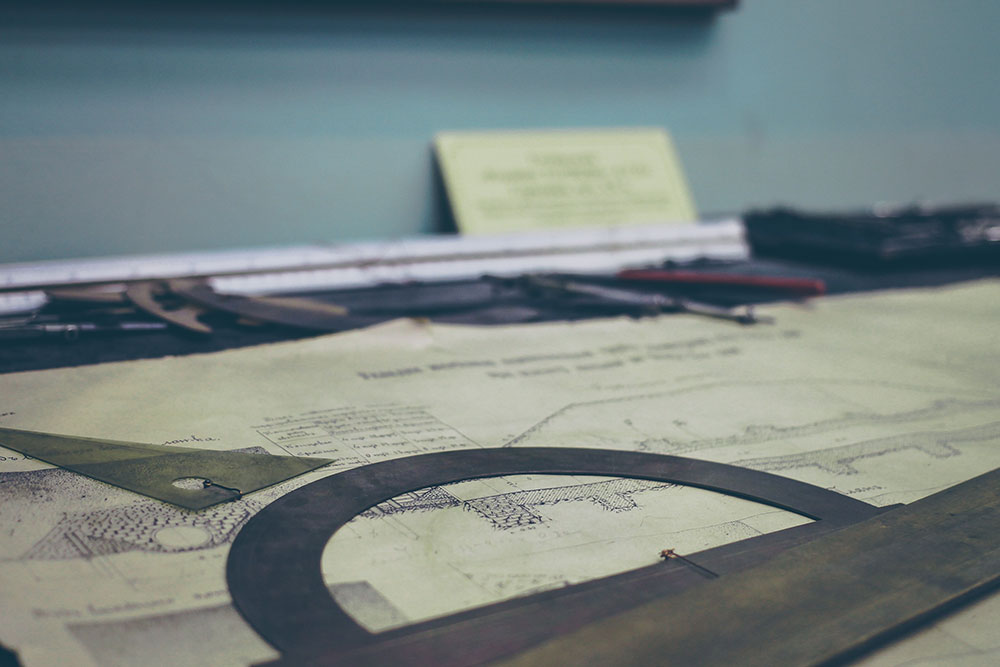10 Reasons Perfectionism Could Be Hurting You & The Solution

Key Takeaways
- Perfectionism, when taken to an extreme, can be a powerful corrosive force, leading to unhappiness, exhaustion, procrastination, and eventual burnout.
- Perfection is an ideal, not a reality. Constantly striving for it can lead to a lack of productivity, procrastination, and a feeling of constant dissatisfaction.
- To counteract the negative effects of perfectionism, focus on the process rather than the results, celebrate small victories, and remind yourself that perfection is just a guide, not a reality.
- Embracing imperfection can lead to greater freedom and better results than maintaining a perfectionist mindset. It’s a slow process, but ultimately beneficial for overall productivity and mental health.

Perfection. How romantic.
As a society we celebrate perfectionists and their behaviors.
Steve Jobs, Leonardo Da Vinci, James Cameron, and Serena Williams are just a few of the perfectionists we’ve celebrated for their commitment to excellence and their never-ending pursuit of the absolute best.
As an entrepreneur or businessperson, you might look up to one or more of these people. You might even model your own behaviors on them.
You’re of the belief that a perfectionist mindset is going to help you reach your goals. Help you succeed. You’re proud to call yourself a perfectionist. Just like your heroes.
In a society that celebrates and romanticizes perfection, sometimes it’s hard to see its downside. If you’ve never considered perfectionism a double-edged sword, don’t worry — that’s completely natural.
Perfection Can Get Extreme
In a lot of cases, a bit of perfectionism can give us the extra push to achieve that little bit more.
But in a many more cases where perfectionism is taken to the extreme, it can be a powerfully corrosive force.
Let’s go back to some of our most lauded heroes.
Steve Jobs obsessed over the details of his products so much his engineers became utterly miserable and the board of his own company fired him.
James Cameron pushed his crew so hard while shooting The Abyss they took to calling the filming experience The Abuse. People resented him and hated working for him even more.
Serena Williams has called herself insatiable and Leonardo Da Vinci actually thought he’d “offended God and mankind because my work didn’t reach the quality it should have”.
Steve Jobs and James Cameron turned everyone against them. Serena Williams and Leonardo Da Vinci, from their own quotes, just sound unhappy.
If you take the time to think about it, an extreme perfectionist attitude towards work and life isn’t exactly healthy.
Perfection — Just an Ideal
Ask any rational person on the planet whether or not perfection exists and it’s likely they’ll tell you it’s just an ideal — an impossibility only existent in a person’s imagination.
What we need to remember is that perfectionists of the most extreme order don’t acknowledge this. They’ll talk about perfection as if it’s an impossibility but chase it anyway.
After all, we celebrate it so often.
So now you’re not exactly sure if you’re a healthy perfectionist or an extreme one. And now you’re starting to worry whether your perfectionism could be hurting you.
The Crunch — Perfectionism Hurts
We’ve come to the crunch. Here are 10 ways to identify how perfectionism could be hurting you.
You sit down to brainstorm a new product or business idea. You sit there for hours generating idea after idea but they all feel wrong. In fact, you feel downright bad. After half a day you’ve come up with nothing but frustration with yourself. You feel like a failure.
You have a bunch of tasks to complete. You commit yourself to completing those tasks. You start knuckling down and you get some stuff done. You momentarily feel good about it. Then doubt sets in so you go back and do them all over again. And again. And again. At the end of the day, you haven’t achieved much.
Again, you have a bunch of tasks. But unlike the last scenario, you don’t even sit down to do them. You go and make a cup of coffee. You drink it, slowly. You eat a donut. Then you do the laundry. Clean the dishes. Go for a jog. You do anything but the actual work. At the end of the day, nothing is done and you’re still waiting for the stars to align for the perfect circumstances in which to do the work.
You’ve spent days, weeks or even months completing your work. You start analyzing the work more closely. You find some minor mistakes. You tell yourself mistakes are unforgivable. You ask yourself why you can’t catch your own mistakes and give yourself a hard time for it.
You’re redoing the few tasks you’ve already done a hundred times. You need another idea even though you have fifty good ones. You tell yourself it’s still not good enough. Perfection demands more. In the meantime, your family and your friends wonder where you are and why you’re always working.
You take little pleasure in your work and you take little pleasure in life. Everywhere you go you see problems and mistakes. Errors in yourself and the work you do. In the work others do for you. In the world. You want to fix everything but it’s a fact of life that you can’t. And it makes you miserable.
Your pitch is accepted. You win new business. Your venture is receiving some serious cashflow now. But nope — still not good enough. Perfection demands that you go out and get more business. That more pitches are accepted and you get even more cash flowing. The thirst cannot be quenched.
You’ve spent months and months (or even years) working eighteen hour days. Your body is starting to say no. You get sick often but you won’t take any rest because you’re in pursuit of the impossible. Perfectionism is the little devil on your shoulder, whispering into your ear that you need to do more even when you’re about to collapse.
You try hard. You really do. But every little thing you do makes you feel further away from your final goal. You just can’t reach the bar. It’s way too high.
In the end, you don’t enjoy anything. You now hate the work you used to love doing. The colleagues that used to have fun working with you don’t even show up. You blame it all on yourself. You ruminate over the value of what you do, the effect it has had on your life and the life of others and you decide none of it is worth it. You give up.
The Struggle is Real — What Do I Do?
Some of you may think the aforementioned behaviors are just downright crazy. And if you do think it’s nuts, it’s likely you don’t struggle with extreme perfectionism. Phew!
But some of you entrepreneurs and businesspeople may have read through the bullet points and now identify yourself as bona fide perfectionists. The romance is gone and you’re seeing it clearly for the corrosive force it actually is.
You’re tired, you’re anxious and even though you put on a brave face when you enter those meeting rooms you feel like you’re an inch off the floor. It’s a little bit depressing.
Don’t get too depressed, though. There are solutions!
A lot of the frustration and anxiety perfectionists carry comes from the deepest desire to be of value, to create excellence and just be downright awesome.
This wildly high and mostly unrealistic level of expectation is what causes a lack of productivity from doing things over and over again (well past the point of diminishing returns) and serious procrastination.
The trick is to focus on process. Break up your goals into little pieces. Focus on these mini-goals one at a time. Even if you haven’t completed tasks to your own satisfaction, move on. You can come back later to fix things up. Stop worrying so much about results. Focus on the process and the results will take care of themselves.
Perfectionists are often waiting for the stars to align so they can do their best work. The issue is the stars don’t align often and the perfectionist ends up being very unproductive.
Let the perfect scenario go. Again, focus on process. Break down your larger goals into mini-tasks. Do your work and don’t judge yourself too harshly. Ladders are climbed a single rung at a time.
For every little task you complete, actively celebrate it. Enjoy every little victory you have and give yourself a pat on the back. This ‘enjoyment’ can relax you – when you’re relaxed you are emotionally positioning yourself to produce better results.
Keep in mind, being content is not being complacent.
If you’re a perfectionist, it’s likely you’ve aimed for perfection many times in your life, missed and ended up kicking yourself when you didn’t hit the mark.
Remember, perfection isn’t real! It’s just an ideal. Remind yourself that a perfect standard can help you better your work and give you the little push you might need. But don’t punish yourself for not achieving a standard that doesn’t exist.
The world isn’t perfect. It never was, it never will be. Reality tells us so.
This will be the most difficult mindset to adopt for any extreme perfectionist. It will take time and effort because at every turn, your perfectionist tendencies will tell you you’re still not getting it right.
The danger here is to fall into a mental loop where you give yourself a hard time about perfecting imperfectionism.
Just keep in mind that it will be a slow process.
Ultimately, embracing imperfection will actually get you closer to perfection than having a perfectionistic mindset will.
Imperfection is freedom. In feeling free, you will achieve greater results than you ever have.
Frequently Asked Questions about Perfectionism
What are the psychological roots of perfectionism?
Perfectionism often stems from a deep-seated fear of failure or rejection. This fear can be rooted in early life experiences, such as overly critical parenting, high expectations from teachers, or traumatic events. The individual may develop perfectionism as a coping mechanism, believing that if they can just be perfect, they can avoid criticism and rejection. However, this belief can lead to a vicious cycle of self-criticism and anxiety.
How does perfectionism affect mental health?
Perfectionism can have a significant impact on mental health. It can lead to chronic stress, anxiety, and depression, as the individual constantly feels under pressure to meet unrealistic standards. It can also contribute to eating disorders, obsessive-compulsive disorder, and other mental health issues. The constant striving for perfection can leave the individual feeling constantly dissatisfied and unhappy, leading to a lower quality of life.
Can perfectionism be beneficial in any way?
While perfectionism is often seen as a negative trait, it can have some benefits. For example, perfectionists often have a strong work ethic, are highly organized, and pay great attention to detail. These traits can be beneficial in certain careers or tasks. However, it’s important to balance these traits with a healthy acceptance of imperfection and a realistic view of one’s abilities and limitations.
How can I overcome perfectionism?
Overcoming perfectionism involves changing your thought patterns and behaviors. Cognitive-behavioral therapy (CBT) can be very effective in this regard. It involves identifying and challenging irrational beliefs about perfection and failure, and learning to replace them with more realistic and positive thoughts. Mindfulness and self-compassion can also be helpful, as they involve accepting oneself as one is, without judgment or criticism.
Is perfectionism a personality trait or a learned behavior?
Perfectionism can be both a personality trait and a learned behavior. Some people may be naturally more inclined towards perfectionism due to their personality type. However, perfectionism can also be learned through experiences and environmental influences, such as parenting style or societal expectations.
Can perfectionism lead to procrastination?
Yes, perfectionism can often lead to procrastination. The fear of not being able to complete a task perfectly can cause a person to avoid starting the task altogether. This can result in missed deadlines and increased stress.
How does perfectionism affect relationships?
Perfectionism can strain relationships, as the perfectionist may have unrealistic expectations of others and be overly critical when these expectations are not met. They may also struggle with vulnerability and have difficulty expressing their feelings, which can create distance in relationships.
Is there a link between perfectionism and impostor syndrome?
Yes, there is a strong link between perfectionism and impostor syndrome. Impostor syndrome is a psychological pattern where an individual doubts their accomplishments and has a persistent fear of being exposed as a “fraud”. Perfectionists often struggle with impostor syndrome, as they set unrealistically high standards for themselves and feel like a failure when they don’t meet these standards.
Can perfectionism be treated?
Yes, perfectionism can be treated. Cognitive-behavioral therapy (CBT) is often used to help individuals challenge and change their perfectionistic thoughts and behaviors. Mindfulness and self-compassion practices can also be beneficial.
How can I support a loved one who struggles with perfectionism?
Supporting a loved one with perfectionism involves understanding their struggles and offering non-judgmental support. Encourage them to seek professional help if their perfectionism is causing significant distress. It’s also important to set healthy boundaries and not enable their perfectionistic behaviors.
Andrew is a freelance writer. He digs writing anything from marketing copy through to feature articles. His most intense interests centre around story and the mediums used to tell them. Especially cinema. Andrew is also obsessed with tasty food and good coffee. Was cinema mentioned? Yeah, he loves cinema. Email him here.





